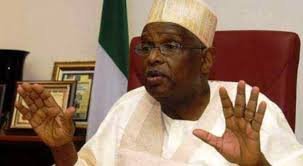Professor Jibril Aminu passed away early Thursday morning, aged 85. In the aftermath of his passing, he has drawn eulogies from numerous individuals across the country.
Background
Professor Aminu was born in August 1939 in Song, Adamawa State. He went on to obtain his M.B.B.S. from the University of Ibadan in 1965 and earned a Ph.D. in Medicine from the Royal Post-Graduate Medical School, London, in 1972.
He served as a Consultant in Medicine, Senior Lecturer, and Sub-Dean of Clinical Studies at the University of Ibadan Medical School between 1973 and 1975. His academic journey also included roles as Visiting Professor of Medicine at Howard University College of Medicine in Washington, D.C., and Vice-Chancellor of the University of Maiduguri from 1980 to 1985. He also served as a Professor of Medicine at the University of Maiduguri from 1979 to 1995.
Also Read:
The Nigerian academic, medical doctor, and public servant’s distinguished career spanned Nigeria’s educational, medical, and political landscapes.
University Reforms
As the pioneer Executive Secretary of the National Universities Commission (NUC) from 1975 to 1979, Professor Aminu laid the foundation for the regulation and orderly development of university education in Nigeria. He was responsible for the establishment of seven additional universities at the time, significantly expanding access to higher education.
During his tenure as Nigeria’s Minister of Education from 1985 to 1989, he introduced the 6-3-3-4 education system, which transformed the country’s educational framework for good. He also established the National Commission for Colleges of Education (NCCE) and the National Commission for Nomadic Education (NCNE), aiming to standardize teacher education and provide educational opportunities for nomadic populations, respectively.
Contributions to the Petroleum Sector
Between 1989 and 1992, Prof. Aminu during his stint as Minister of Petroleum and Mineral Resources, increased transparency and national revenue in the petroleum sector by expanding the petroleum products pipeline networks across Nigeria and established additional depots, enhancing the country’s energy distribution infrastructure.
Professor Aminu also served as Nigeria’s Ambassador to the United States from 1999 to 2003, before he was elected as Senator for Adamawa Central in 2003 and re-elected in 2007.
Other Recognitions
Professor Aminu became a Fellow of the Nigerian Academy of Science in 1972, a Fellow of the Royal College of Physicians, London, in 1980, and a Fellow of the West African College of Physicians also in 1980.
He was also made a Distinguished Fellow of the Nigerian Postgraduate Medical College in 2004.























